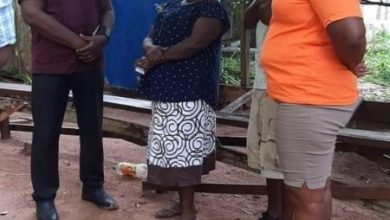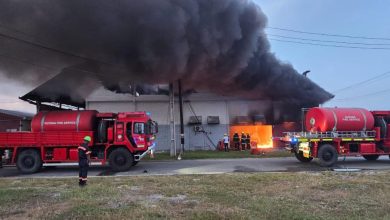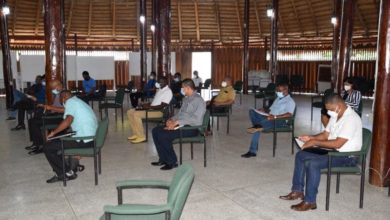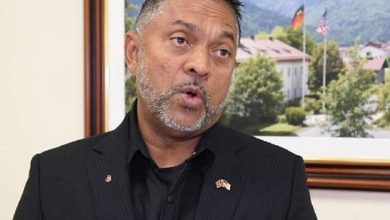Caribbean RoundUp
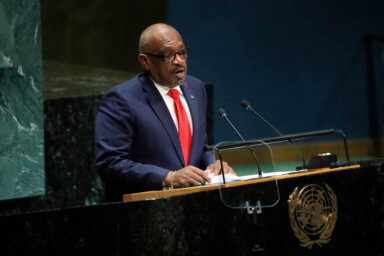
Antigua and Barbuda
Antigua and Barbuda Prime Minister Gaston Browne described a ruling by the International Tribunal for the Law of the Sea that carbon dioxide is an ocean pollutant as “an historic opinion.”
The court said emissions from fossil fuels and other planet-warming gases that are absorbed by the oceans count as marine pollution and countries had an obligation to take measures to mitigate their effects on oceans.
Antigua and Barbuda was among nine countries that brought the court action last September saying that the country was disproportionately affected by climate change.
The Hamburg-based court ruled in an expert opinion that “anthropogenic GHG emissions into the atmosphere constitute pollution of the marine environment under the United Nations Convention on the Law of the Sea (UNCLOS).”
“It is certainly an historic opinion, one that will actually inform future action by SIDS (small island developing states) and other countries that are literally concerned about climate change and the impact of climate change,” Browne said.
“I am certainly very happy that Antigua and Barbuda had taken the lead in establishing COSIS, that is the Commission of Small island States on Climate Change and International Law. This commission obviously was standing by Antigua and Barbuda and Tuvalu on the margins of COP 21 in Glasgow and where it was felt it was unlikely that we would have gotten a positive legal opinion.”
He added that Antigua and Barbuda and the other countries affected by the ruling could utilize this opinion, though not legally binding to negotiate with those large polluters “greater resources to adapt and mitigate against the effect of climate change and also to get more resources for loss and damage.”
Browne said he believed the court ruling “is an important decision and it will certainly set the stage for similar opinions.”
Caribbean
A recent survey by the World Food Programme (WFP) and CARICOM revealed that approximately three million people in the region are affected by high local prices and persistent food insecurity despite a global decline in food prices.
The 2024 Caribbean food security and livelihoods survey revealed that the region’s high reliance on imported fuel, food, and agricultural inputs makes it vulnerable to global price fluctuations.
Regis Chapman, WFP representative and country director, said the primary issue people are complaining about is the high cost of food.
According to the report, inflation continues to affect 96 per cent of respondents in the last three months and while it represents a 17 percent reduction since May 2023, it is a 78 percent increase compared to the start of the covid19 pandemic.
WFP Head of Program, Sarah Bailey said, “This particularly affects vulnerable groups like lower-income individuals and those with disabilities and chronic illnesses.
Livelihood disruptions remain widespread, with some experiencing job loss or reduced income in their household, while others resorted to secondary sources of income.
The rising costs of animal feed, fertilizer and fuel have significantly impacted farming and fishing respondents.
Natural hazards, mainly by heat- waves, floods, drought and tropical storms, continue to pose a consistent threat leading to a low resilience capacity to cope with and adapt to natural hazards.
Since 2020, Caricom has been conducting the Caribbean Food Security and Livelihoods Survey to gather data on people’s livelihoods, market access, and food security.
Guyana
Vice President Bharrat Jagdeo says Guyana is not “spoiling for a fight” with Trinidad and Tobago, but maintains that phytosanitary restrictions must not be used to stifle the transport of goods.
“We have a great relationship with Trinidad and Tobago…and we don’t want to sound as though we are spoiling for a fight,” Jagdeo said, adding that the government wants to ensure that Guyana’s exports are treated fairly in their market, as goods procured from T&T are treated in the Guyana market.
T&T re-assured Guyanese exporters that their products would be welcomed into the twin island once they undergo a “risk analysis” before their products are allowed to land in the Caribbean Community (CARICOM) country.
Minister of Trade and Industry, Paula Gopee-Scoon, told reporters that there were certain guidelines for entry into the T&T market.
“An import permit is required but based on the fact that this is the first time that any item like milk has been coming in from Guyana, there is a requirement for what is called a risk analysis to be done and we are prepared to work with the Guyana company to ensure that this is done expeditiously and that no such product, as far as is humanly possible, would ever be returned to or a decision would not be taken to return by the private sector,” she said.
The Demerara Distillers Limited (DDL) said that its packaged milk and containers of bottled flavored water had been placed under heavy scrutiny by Trinidad in moves that are of “grave concern.”
He said the products are worth an estimated US$130,000.
Jagdeo told reporters that the government has been a constant advocate for the reduction of trade barriers in the Caribbean.
He said, “We believe it is essential to the promotion of wealth, and the growth of trade across CARICOM.”
“The way our goods and our exports are treated across the region, but in this particular case in Trinidad and Tobago, the same way their goods entering the Guyanese market will be treated. Full reciprocity on all of the issues.”
In a statement, T&T’s Ministry of Trade and Industry said it had taken note of the situation “relating to the trade in milk products” between the two CARICOM countries and “based on a review of this matter” it should be noted that “there is no prohibition on the importation of animal products into T&T from any CARICOM member state including Guyana.
“However, for these products to be exported to Trinidad and Tobago, counties must be approved by the Ministry of Agriculture, lands and Fisheries. This is a one-time approval associated with first time exports.”
Haiti
Haiti’s main international airport reopened last week for the first time in nearly three months after continuous gang violence forced authorities to close it to all traffic in early March.
The reopening of the Toussaint-Louverture Airport in the capital of Port-au-Prince is expected to help ease a critical shortage of medications and other basic supplies since the country’s main seaport remains paralyzed.
However, only Sunrise Airways, a local carrier, is flying in and out of Port-au-Prince for now.
There was only one airport operating in Haiti located in the north coastal city of Cap-Haitien. However, it was out of reach for many seeking to flee the country since the roads leading from Port-auPrince to Cap-Haitien are controlled by gangs that have opened fire on cars and buses passing through.
The attacks began on Feb. 29, with gunmen seizing control of police stations, opening fire on the Port-au-Prince airport and storming Haiti’s two biggest prisons, freeing more than 4,000 inmates.
Airport workers, including those at immigration, were content to be finally back at work.
Dozens of people had lined up at the Sunrise Airways counter hours before the afternoon flight, some taking selfies, others chatting contently.
St. Kitts and Nevis
St. Kitts-Nevis Health authorities have expressed concern at the continued trend of imported cases of measles into the Caribbean. The Office of the Chief Medical Officer (CMO) said that, the Turks and Caicos Islands (TCI) reported two laboratory confirmed cases of measles despite having a national measles vaccination coverage rate of 95 percent.
The CMO statement did not confirm any case occurring in St. Kitts or Nevis, but said currently, there are prolonged measles outbreaks occurring in the United Kingdom, United States and other health regions globally.
The statement said that two-island federation benefited from daily flights to and from the United States and weekly flights to and from London.
“An unsuspected, traveller can import the virus to our islands and cause the disease to spread among locals, who are unvaccinated,” it said.
It is spread by air- borne droplets or via direct contact with secretions from the nose, mouth, and throat of infected individuals. The symptoms include high fever, generalized rash all over the body, stuffy nose, and reddened eyes.
The CMO said that the St. Kitts-Nevis Ministry of Health was being proactive in augmenting its expanded program on immunization (EPI).
“The aim is to reach all the unvaccinated children in order to increase our vaccination coverage rate. We also will target front line workers to encourage them to check their measles vaccination status.
The authorities said that they have strengthened the surveillance system as well as the capacity to accurately detect and treat suspected cases of measles. The ministry also has the ability to track potential contacts.
St. Vincent and the Grenadines
Rivers and reservoirs are low in St. Vincent and the Grenadines, resulting in the rationing of water, which Member of Parliament for the Southern Grenadines, Terrance Ollivierre raising the issue in Parliament.
The Central Water and Sewerage Authority (CWSA), the municipal supplier of water, announced water rationing in large sections of St. Vincent, which will continue “until conditions improve at the source,” the CWSA said, adding that consumers should ensure that there is adequate water stored for homes and businesses.
The latest notices extend the water rationing to even more consumers, one month after they first came into effect for some communities
CWSA has also said disruptions may occur before or after the stipulated time and may go on for a longer period than expected.
Meanwhile, in Parliament, the Southern Grenadines legislator Ollivierre asked Minister of Grenadines Affairs, Senator Benarva Browne what plans were in place to deliver a safe and reliable public water supply to the people of the Southern Grenadines and when this could be put in place due to the shortage of potable water supply in the Grenadines during the dry season every year.
“The transportation and distribution of water from St. Vincent will continue throughout the dry spells,” said Browne.
Browne said that the government will continue to maintain service and develop photovoltaic (PV) plants and desalination plants to provide a clean water supply.
— Compiled by Devika Ragoonanan

